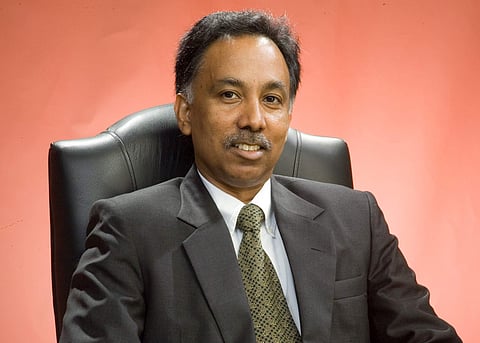

We all know NR Narayana Murthy, the Founder of Infosys, but how many of us know of S D Shibulal, one of the founding members of Infosys. Throughout his career and his time in the organisation, Shibulal always wanted to give back to the academic sector. Realising his dream, the Infosys Science Foundation (ISF), founded in 2008, conducts interactive Science experiments and sessions for both government and private school students. He believes that these sessions will motivate them to take up a career in various streams of science and not just engineering or medical science.
Excerpts from the interview:
1. How has your journey been so far in the Infosys Science Foundation?
The Infosys Science Foundation was started 11 years ago and the journey has been very interesting. At that point in time, the founders and management of Infosys felt that we should give back to society. It is particularly because the IT sector gained tremendous talents from the academic sector of the country. We had recruited a lot of researchers in our lab and at the same time, we were providing scholarship to them for their research. Most of them were youngsters and we realised that there are people out who want to make a career in science. We came to the conclusion that we must motivate students from their school days to look at Science and Research as career options as well.
In the last 11 years, we have conducted several interaction programmes for children and the most recent one was about the Maglev train in Japan that travels at over 603 kilometres/hour. We were able to explain to students the physics behind a train travelling at such a great speed, the concept of magnetic levitation and so on. Similarly, we encourage the researchers to continue their work in different fields by giving them the Infosys Prize. This is not a lifetime achievement award but a mid career award. Many people who have received this prize have gone on to achieve big things. For example, Prof Raghuram G Rajan, who won this award, went on to become the Governor of RBI. And Prof Abhijit Banerjee, who received this award in 2009, won the Nobel Prize in Economics.
2. Why do you consider giving the Infosys Prize in the categories of Social Sciences, Life Sciences and Humanities?
In today's world, most of the researches are interconnected with various sciences. In fact, the Infosys PRize awardee, G Mugesh's research is all about molecules and their chemical synthesis for biomedical applications. But if you look at it, his work is all about integrated work in Chemistry and Biology. He can create enzymes for biological use. Another example is S K Satheesh, who got the award for Physical Sciences last year. He was involved in research on climate change. Like this, there are several examples. Hence, it becomes important to give prizes in all the streams of science and not just one.
3. Do you have outreach programmes for children in rural areas?
Yes, we have outreach programmes for children in rural areas. There are totally 12 lecture series that we conduct every year. While six programmes take place in urban areas, six more programmes take place in rural schools. These lecture series are conducted by our awardees so that the children can look up to them as role models.
4. In the current times, where children are brainwashed only to study engineering, do you think we have enough talent to conduct research in Math and Physics?
Of course, there is enough talent for these two subjects in India. It's just that there is no one to direct them. Again, the awardees and our education system in the country play an important role to create curiosity for Science among our youngsters. The education system must make a point to maintain this spirit of curiosity. Aside from this, they must also provide funds for research. As we all know, the research funding in this country is only 0.7 per cent of the budget. Now, the government is planning to make it 1 per cent. Even the funding from the private sector is only 1 per cent when compared to developed countries where the total funding is 3 per cent with an equal divide between public and private sectors.
5. What plans do you have for ISF?
Our primary focus is on creating awareness about Science among children, rewarding those who have taken up a career in research. This will always remain. We plan to expand our lecture series to different areas so that children see scientists not as nerds but as role models.
